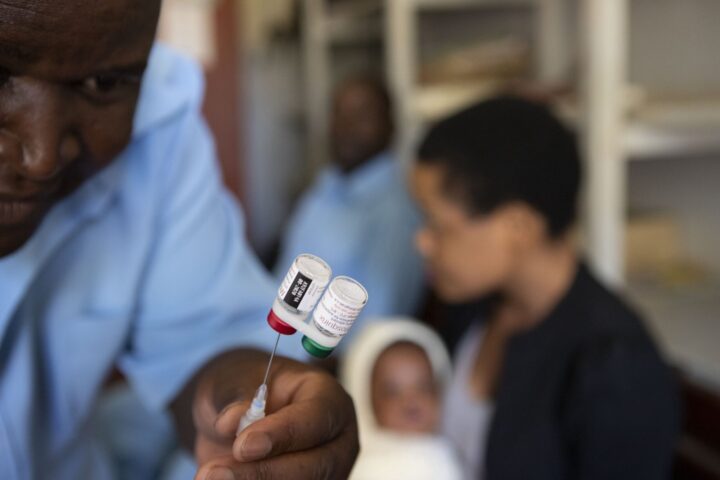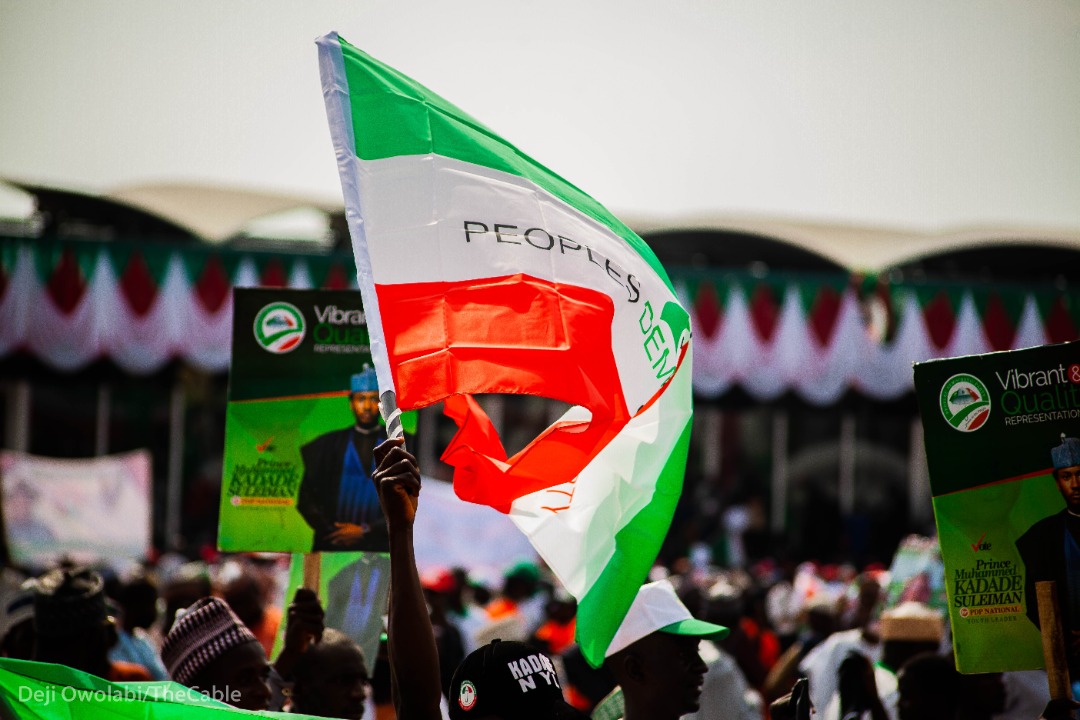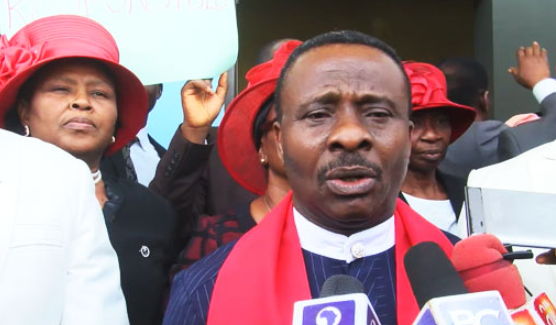Photo: WHO
Months after a report by the World Health Organisation (WHO) listed Nigeria as contributing 27 percent of the global malaria cases, Osagie Ehanire, minister of health, said the country needs N352 billion to implement its strategic malaria plan for 2021.
According to the WHO world malaria report 2020, six countries made up more than half of the cases worldwide, and Nigeria accounted for the highest number of fatalities with 23 percent of deaths. Children under five are the most vulnerable group, while according to statistics, over 90% of Nigerians are at risk.
It was, therefore, welcome news when the WHO, on October 6, endorsed the widespread use of the RTS,S/AS01 (RTS,S) malaria vaccine.
There’s more on the malaria vaccine here.
Advertisement
‘MALARIA KILLS MORE CHILDREN THAN COVID’
With concerns on poverty, lack of access to quality healthcare, the thriving anti-malaria drug market, among other issues, there are questions on how much difference the malaria vaccine will make for Nigeria’s population of over 200 million people.
The National Malaria Elimination Programme (NMEP) is responsible for formulating and facilitating policy guidelines, coordinating activities of stakeholders on malaria control, and providing technical support to states and LGAs.
Advertisement
“We also have other preventive measures for pregnant women, called intermittent preventive treatment of malaria in pregnancy, and interventions such as distribution of nets. You know that we’ve been doing net campaigns across different states, even during the pandemic. We ensured that all these interventions didn’t stop during the pandemic because malaria kills more children than even COVID,” Perpetua Uhomoibhi, national coordinator of NMEP, said.
“The government and partners have continued to roll out interventions for prevention, diagnosis and treatment of malaria in health facilities and at community level.”
Gbenga Mokuolu, associate professor of paediatrics at the University of Ilorin with over 15 years experience in the care of newborn in the tropics and malaria case management, said although the journey ahead is still far, the country has made significant progress.
“The fight against malaria is not something that can be achieved with a magic wand. It is a continuous, sustained and intense engagement for us to get the results that we want,” he told TheCable.
Advertisement
“You need a multipronged approach to deal with habitats that would have ordinarily favoured the multiplication of the mosquito, and you also need human behavioral practices that will limit the possibility of it or the effective treatment of malaria when someone comes down with it.
“Nigeria has been taking the relevant steps, and we have been making some progress. As of 2010, when you go to the communities to test how many children between five and 10 years old have the parasite in their blood, you’ll find about 40 percent. But by 2018, the number came down to 23 percent.
“So, this year, activities are on to conduct such a survey again, and people are gradually being mobilised to different states to collect samples. At the end of that activity, we’ll know the further progress that has been made.”
WILL THE VACCINE MAKE A DIFFERENCE?
Advertisement
Poverty and environmental factors which may be natural or human-induced — such as refuse dumps, potholes, abandoned ditches and overgrown bushes — contribute significantly to the spread of malaria.
The WHO says the vaccine offers some hope for Africa, which shoulders the heaviest burden of the disease. With Nigeria carrying a considerably large amount of this burden, the vaccine is expected to help — when used alongside other preventive measures.
Advertisement
According to Mokuolu, the development of the vaccine is great news.
“It is a welcome development. It is not yet at the level of a perfect solution, but it is beneficial in reducing the burden of malaria,” he said, adding that while the vaccine is only “complementary”, it should be used alongside other measures like mosquito nets since the vaccine does not provide a high percentage of immunity.
Advertisement
On whether the introduction of the vaccine will reduce self-medication, Mokuolu said “it’s possible that when some children receive the vaccine, the urge for them and their parents to self-medicate will be slightly lower because they feel the child is protected”.
“But this is a hypothetical case. When it comes to behaviour issues, you can’t forecast them. We just have to monitor the experience and reaction of people when the vaccine becomes available,” he added.
Advertisement
‘WE WANT TO REDUCE MALARIA DEATHS TO ZERO’
Speaking with TheCable, Godwin Ntadom, chief epidemiologist of the federation and former head of case management and drug policy for NMEP, said the vaccine will give children under five partial immunity, which older children and adults develop overtime.
“Due to constant exposure to mosquito bites and getting malaria infection, overtime, we develop partial immunity to malaria. When a child is born, it does not have that partial immunity and that is why many children below the age of five die. What the vaccine is going to do, is assist children that are less than five years to develop partial immunity,” he said.
“Of course, we’ll still be getting exposed to mosquito bites and having malaria, but before they develop their own partial immunity, this vaccine will assist them with some immunity so that they will not die as a result of malaria.
“The vaccine is actually coming in to support other interventions to stop them from dying before the age of five. It is an additional layer of protection. Nigeria recorded about 100,000 deaths from malaria in 2019, so with this intervention, if we’re able to reduce that number, it’s an achievement.
“What we’re saying in essence is that, well continue to deploy as many interventions as possible. Our goal is to reduce malaria deaths to zero. At that point, we would have gotten malaria elimination.”
‘IT’S NOT TIME FOR NIGERIA TO RELAX’
Reports from trials of the vaccine advise that other preventive measures be used as well to get maximum protection against malaria. According to the NMEP coordinator, there is a need for sensitisation to ensure that people don’t let their guard down.
“The vaccine is not 100 percent so people should not think that because their children take the vaccine, then they will relax. It has to be combined with other interventions,” Uhomoibhi said.
“The vaccine will help, but it doesn’t mean it is a stand-alone solution. We’ll like the media to inform the public that even if they are excited about the vaccine, it is only for children, and it’s not a hundred percent protective.”
WHAT EFFECT WILL IT HAVE ON THE DRUG MARKET?
The federal government recently secured a credit facility for $364 million to fund medical interventions against malaria in 13 states. There is also a readily-available drug market in Nigeria, with several options on treating malaria in children and adults.
Speaking on if the vaccine will affect the drug market, Odili Nonso, CEO of DrugIT, said the pharmaceutical industry in Nigeria makes a lot of money from anti-malarial medicine and antimalarials tend to have a larger market compared to other anti-parasitic medications.
“For every five anti-parasitic medications, you would have about three anti-malarials. The market is very large. For every new pharmaceutical trying to penetrate the market, they tend to start with anti-malarials because it’s more like an easy-get,” he said.
He, however, said the introduction of the malaria vaccine would not have a significant effect on the revenue of the pharmaceutical industry, given the small demographic targeted.
“In the long run, it will help tremendously but right now, the only one that has been approved is the Mosquirix and it has only been approved for children below the age of two. That seems to be a very small demographic when combating malaria,” he said.
“Naturally, children below the age of two are very much protected. They tend to be protected with insecticide-treated nets and they’re properly clothed compared to children younger than that age and adults. If the WHO decides to make a modification to their recommendation and advise that the vaccine be given to older children, then yes, it will have a significant impact on the pharmaceutical industry with respect to anti-malarials.
“The vaccine doesn’t have a long term effect; it tends to reduce over time. As much as it’s a light in the dark right now, I think so much work still has to go into place to get something better than that. Within the next five to 10 years, I doubt the effect will be significant on the revenue for anti-malarials.
“Another thing is acceptance. People would rather go get the anti-malarials which they’ve been using and are a lot more comfortable with than exposing their children to the vaccine.
“The pharmaceutical industry welcomes the vaccine and will do everything in its power to facilitate its acceptance to ensure that the fight against malaria is won.”






